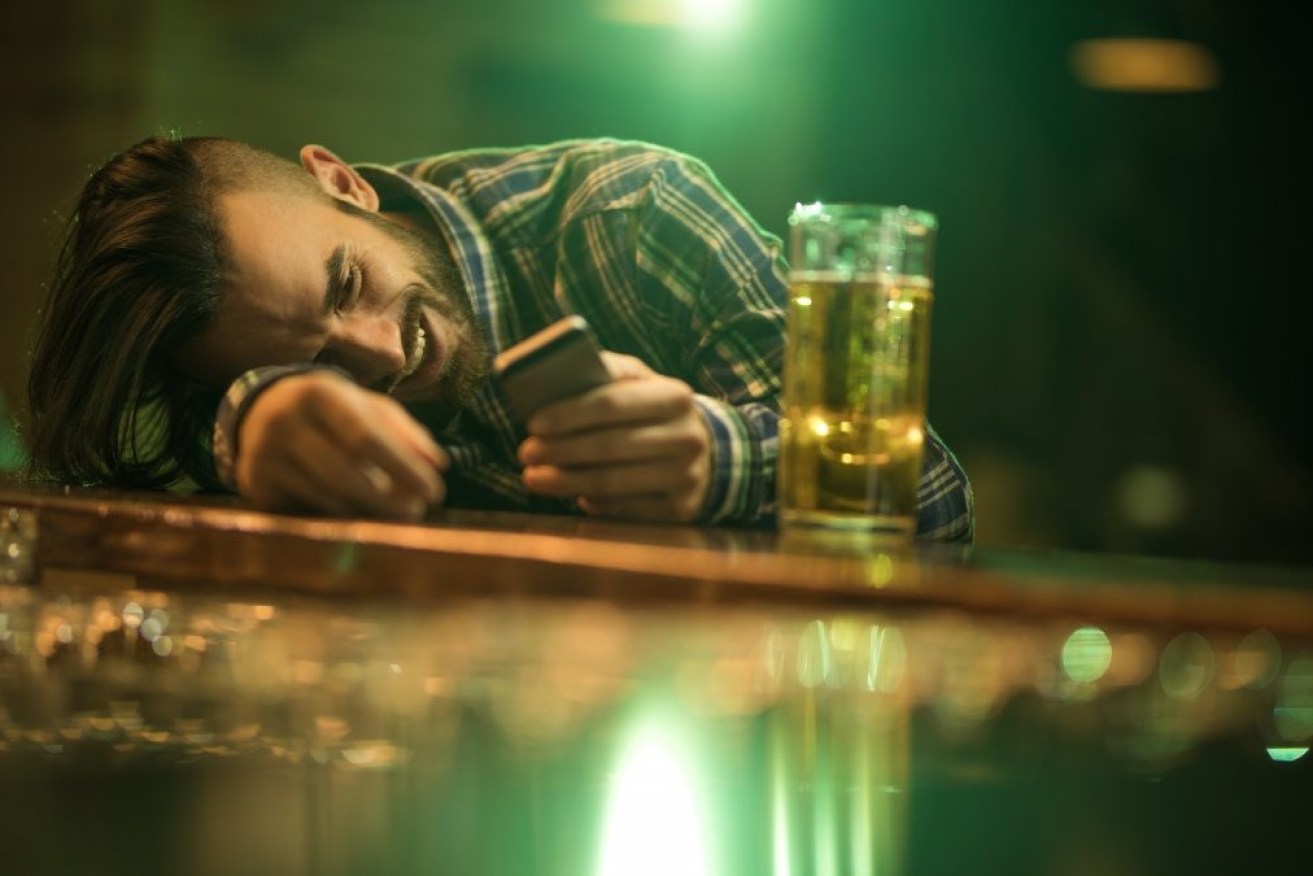Uber’s alleged plan to exclude drunk passengers slammed as ‘unfair’


Getting full as an egg in public will no longer be a crime in Victoria. Photo: Getty
Uber’s alleged plan to develop technology to allow drivers to detect whether a passenger is drunk has been slammed as a drink-driving risk and potentially discriminatory to people with disabilities.
The ridesharing service has lodged an application in the US to patent machine-learning technology that aims to predict a rider’s current state, referencing “safety incidents” when passengers behave “uncharacteristically”.
The technology would allow Uber to collect data from passengers, including whether they are making unusual typos, holding their phone at an odd angle and how quickly they’re walking, factoring in their location and the time of day.
It can also compare small changes in these behaviours with data collected from previous activity to determine if the passenger is behaving normally or out of character.
The patent was widely interpreted as a means of detecting and excluding drunk passengers.
Uber denied it was planning to use the technology to give its drivers the ability to avoid picking up inebriated passengers. A spokesperson told The New Daily this was “not our intent”.
It refused to comment on what the technology would be used for.
“We are always exploring ways that our technology can help improve the Uber experience for riders and drivers,” the spokesperson said.
“We file patent applications on many ideas, but not all of them actually become products or features.”
Industry and disability bodies fear the technology could allow Uber drivers to discriminate against certain people, such as those with mobility impairments and other vulnerable passengers.

A leading AI expert warned that the technology could force more drunk drivers onto the road. Photo: Getty
Advocacy group People With Disability Australia (PWDA) slammed the technology as “absolutely discriminatory” if people with disabilities could be mistakenly identified as drunk.
“The technology relies on being able to hold a phone steady, without shaking and to type quickly, in order to measure whether someone is drunk,” PWDA advocacy director Romola Hollywood said.
“Many people with a disability would register as intoxicated with this new technology.
“Many rely on private vehicles, like taxis and ridesharing services like Uber, because of accessibility problems with other forms of transport.
“Putting any kind of further barrier in the way of people with disability using transport makes life harder.”
Drink-driving risk?
Leading artificial intelligence expert Professor Toby Walsh said he was worried this technology would force drunk drivers onto the road.
“We want to encourage drunk drivers to take a taxi or Uber home, not to make it harder,” he said.
“I am also worried that such technology might unfairly discriminate against disabled and other users. In the past, we all had equal access to taxis.”
Les Johnson, Uber driver and secretary of the Ride Share Drivers Association of Australia, said he was sceptical about the accuracy of the technology.
“As a driver, the Uber app regularly tells me that it is detecting movement while I’m driving – and my phone is always in a cradle mounted to the car dash. So I’m not sure how accurate this technology would be,” he said.
“As for spelling mistakes, I don’t think that’s terribly unusual for young people sending text messages quickly.”
Mr Johnson added that of the thousands of rideshare journeys, he has only ever picked up two passengers whose trips he decided to terminate because of their inappropriate attitude and behaviour while drunk.
He said he was not aware of any other rideshare company considering this kind of data collection.








